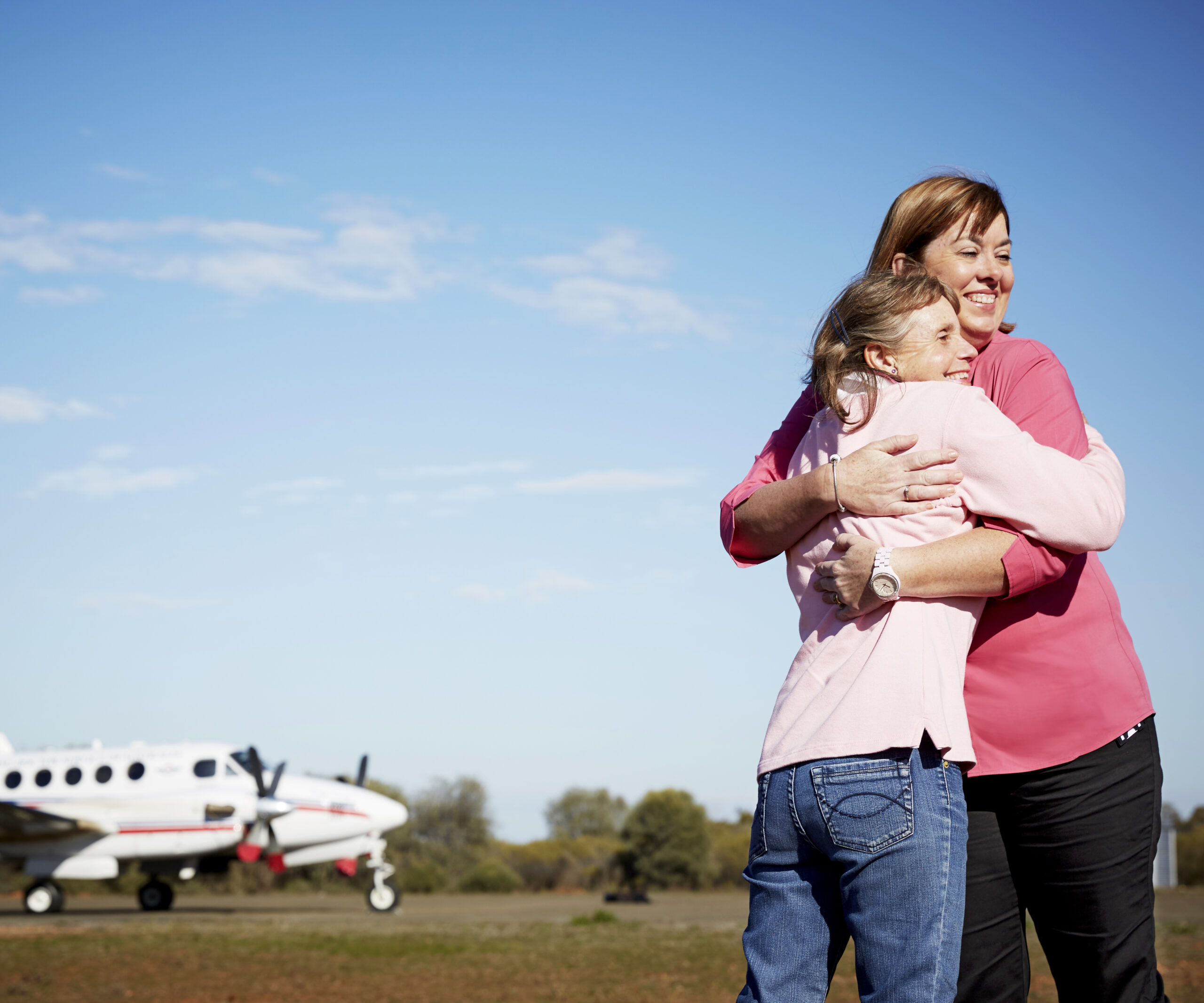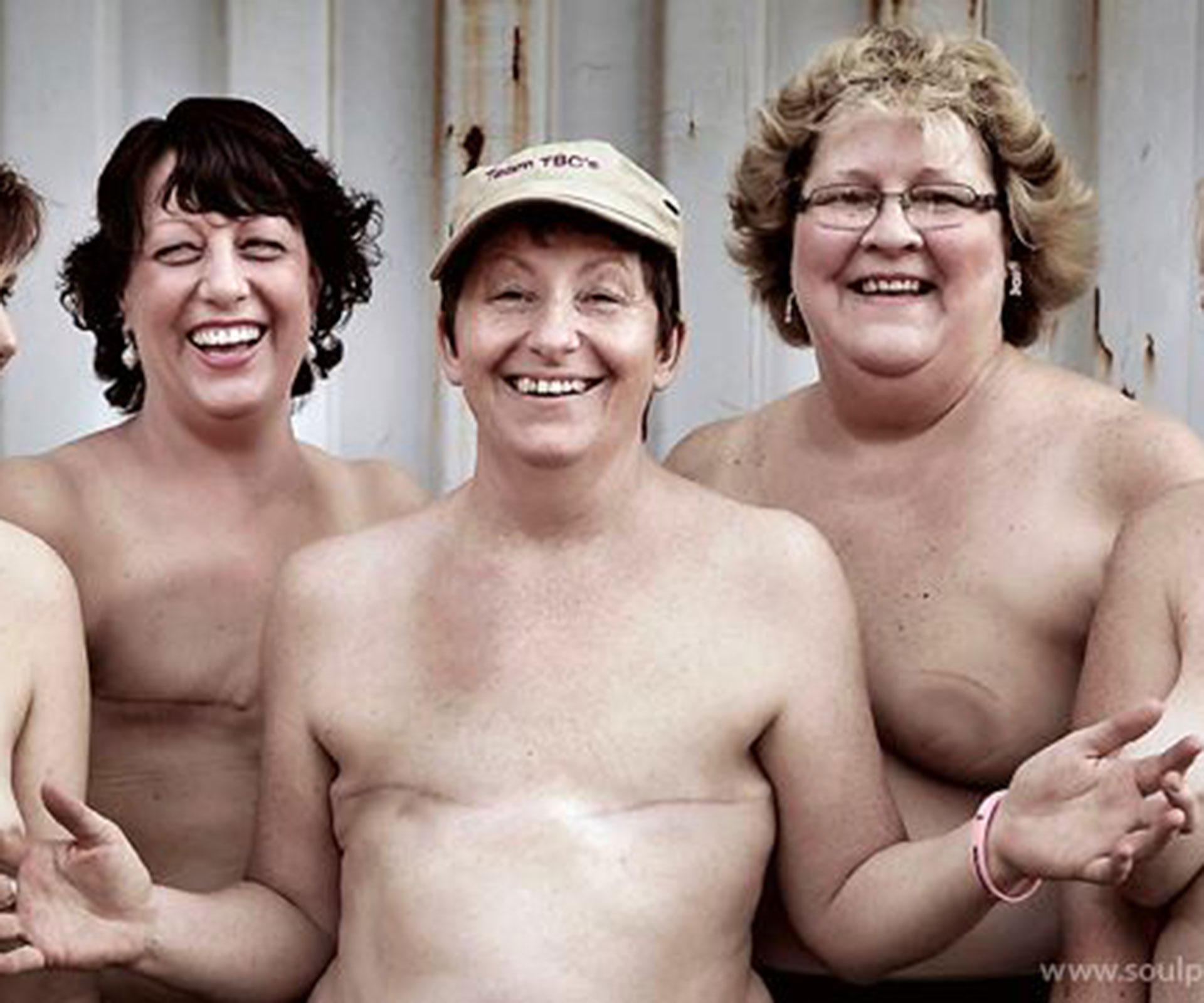When the Flying Doctors plane lands on the desolate airstrip at Ivanhoe, someone is always there to meet it.
This person must drive down the airstrip to scare kangaroos away, then ferry medical staff to the clinic in this tiny outback NSW town.
Today, our roo-chasing chauffeur is pint-sized farmer Jill Crozier, 58, here to be reunited with the woman who helped save her life, breast care nurse Jo Beven.
Jill’s story begins when a lamb kicked her in the left breast.
“I thought I was just bruised, but when I had a shower I felt a lump and had this sick feeling. In hindsight, that lamb saved my life – it made me go to the doctors.”
That lump turned out to be so hard, the experts had trouble getting a needle into it. And it was cancer.
“Before my mastectomy, I talked to my breast, saying, ‘Thank you very much for nurturing my child, now it’s time to go,” says Jill.
Next came chemotherapy, meaning a gruelling 1600km round trip to Adelaide every three weeks, for five months. After that, Jill needed another IV drug, Herceptin, every three weeks, for 12 months.
The treatment was taking its toll and Jill couldn’t leave her husband Allan and 7500 hectare sheep station again – so Jo organised to fly in, the drugs packed in a cooler, to give her the treatment.
And so a life-long friendship was born.
It’s not just a cliché that everyone knows everyone in the bush – it’s bang on in Ivanhoe.
When Jill was sick, she received home-care help from young local mum Tammie McMaster.
Not long after, Tammie, too, felt a lump under her armpit. She was 31.
The same harrowing trips to Adelaide for breast cancer treatment ensued, but Tammie had the added anguish of caring for two young children.
And again, nurse Jo stepped in to give the Herceptin treatment to top off the life-saving regimen.
“Jo was always happy and funny – and what’s important is that she treated me just like a normal person,” Tammie says.
Jo says it is important that Tammie tells her story, as so many young women think that cancer just can’t happen to them.
Though Jo flies to work and battles dust, heat and flies, her job is the same as breast care nurses across the nation.
“No matter where women are, they all have the same questions,” she says.
“They are hearing words they have never heard before. And they all want to know, ‘What the hell do I do now?’”
Jo, who works out of a hangar at Broken Hill airport, likes to joke that she is by “royal appointment”, as her McGrath Foundation position was announced when Crown Princess Mary of Denmark visited the Royal Flying Doctor Service in 2011.
For the women of the outback, Jo is more important than any royal – after all, she helps save lives.
For a major report on the work of the McGrath Foundation, buy a copy of the October issue of The Australian Women’s Weekly, on sale now.



